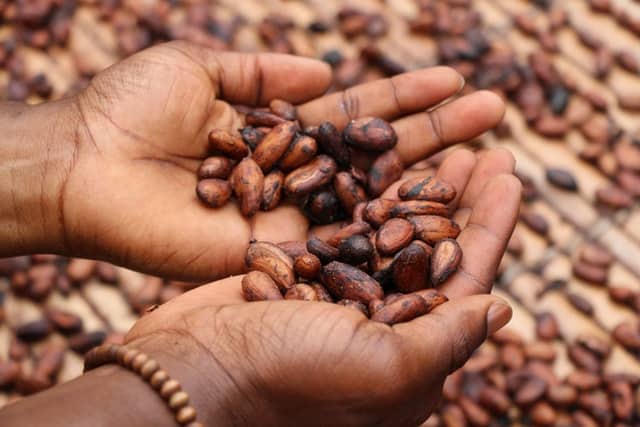Redesigned for a “more dynamic, progressive” world, the transformation of M&M characters has taken social media by storm. Conservatives and liberals alike are disgruntled at the ‘defeminisation’ of the green M&M. But is this all a smokescreen to hide ongoing child labour allegations against Mars?
The cocoa industry has long been plagued by child slavery. More than 76% of cocoa is produced in Africa, especially along the Western flank. Ivory Coast alone is responsible for 45% of global cocoa supplies.
Unfortunately, these are the very regions and countries that rank among the world’s poorest. While poverty levels in Ivory Coast fell from 2015 to 2020, this was confined to the country’s urban centres. In the same period, poverty in rural areas rose by 2.4%.
Chronic poverty cycles in West African countries, along with weak states, are instrumental in pushing children into exploitative work. Many minors are manipulated into cocoa harvest, trafficked to farms and falsely promised pay and travel documents.

This is the story of eight children who filed a lawsuit against the world’s biggest chocolate producers in 2021. The children accused major chocolate companies, including Nestlé, Mars, and Hershey, of aiding and abetting the enslavement of thousands of children on cocoa farms. It was the first time a class action of this kind was filed against the cocoa industry in the US.
For Mars, the company behind M&Ms, this is not the first lawsuit they’ve faced over child labour. In 2015, class action lawsuits were brought against Mars, Nestlé and Hershey, claiming they mislead consumers by failing to disclose unethical production practices.
But these were dismissed by district courts, a decision then reinforced by the federal appeals court. Mars has declined to comment on the current lawsuit.
In 2001, chocolate industry giants, under pressure from the US Congress, ratified a commitment to eradicate “the worst forms of child labour” from their West African supply. The original deadline was set for 2005, but ambitions have been significantly scaled back.
By 2020, the group’s goal was modified to ‘reduce’ child labour by 70%. Chocolate companies have consistently failed to meet targets set for 2005, 2008, 2010, and 2020. Mars can only trace 24% of its cocoa back to the farm level, more than twenty years after their original pledge.
The unethical practices of multinational corporations are becoming all the more visible in the age of social media. But it is depressingly difficult to make consumers care about the injustice present in the products they buy, from ‘fast fashion’ to chocolate.
Follow Maddie’s journalism journey on Twitter.
Sign Up To Our Free Newsletter